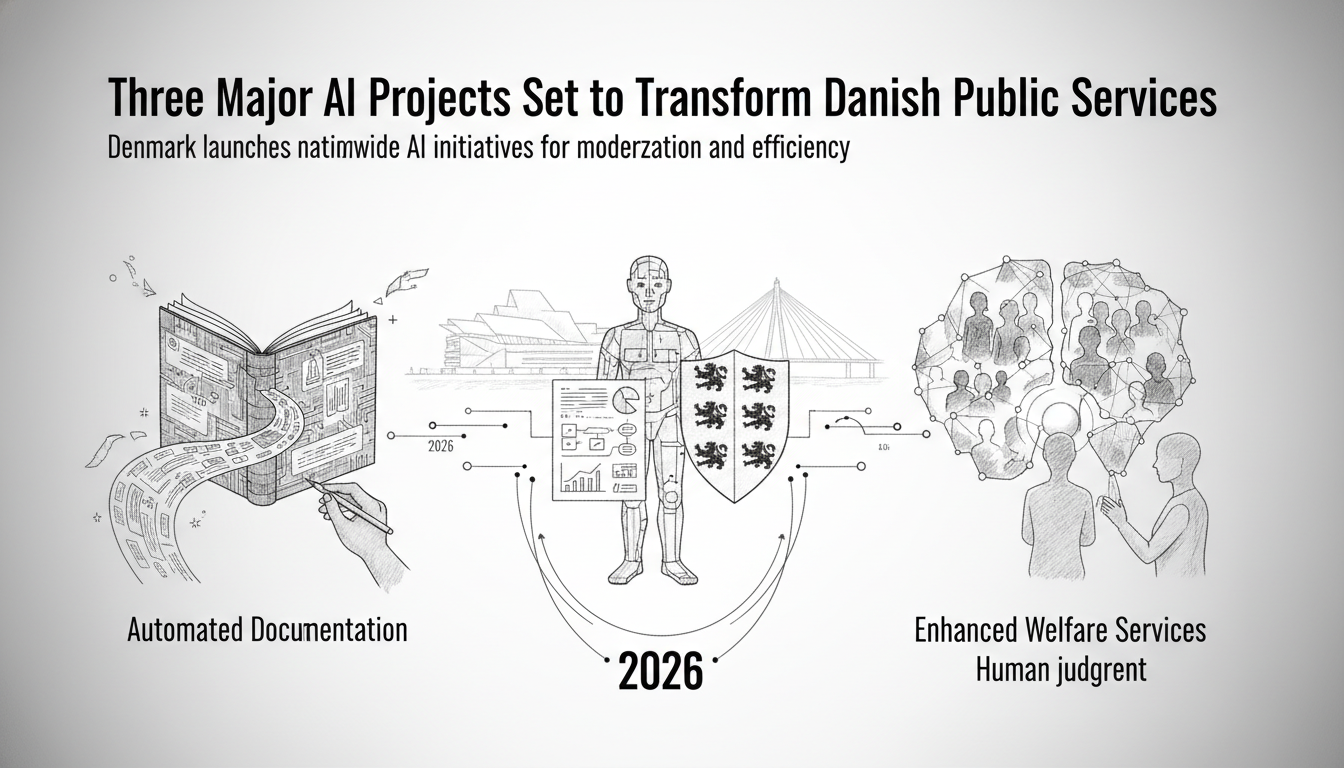The Danish government has selected three large-scale artificial intelligence projects to modernize public services. Digitalization Minister Caroline Stage announced the initiatives after months of preparation and some delays. The projects represent the government's proposal for municipalities and regions to implement nationwide.
These AI systems will handle automated documentation, helping read medical records and write summaries. They will also provide digital assistants for citizens and businesses as alternatives to self-service solutions. Additionally, AI helpers will support public sector employees with case processing tasks.
Minister Stage emphasized that computers won't replace human judgment in public services. She stated the technology should enhance and streamline how workers use their time. Many AI solutions already exist in various parts of the public sector. The government now wants to consolidate these tools and make them available to all municipalities, regions, and state institutions.
The implementation challenge involves getting municipalities to adopt these systems effectively. Stage noted workers have only seven or eight hours daily for their duties. She argued these hours should be used properly, which doesn't always happen currently. The minister believes AI can help achieve this goal.
Government ambitions focus on AI freeing resources while improving welfare service quality. Stage expressed confidence that municipalities, regions, and state institutions could recover substantial work hours for more important tasks. However, she clarified this isn't primarily about reducing administrative costs in the public sector.
Prime Minister Mette Frederiksen originally announced the initiative during a speech at the Local Government Denmark summit in March. She wanted the three projects identified before summer. Frederiksen declared that Denmark's public sector should lead globally in artificial intelligence application.
The financial aspects remain unclear at this early stage. Minister Stage cannot yet specify what the three large-scale projects will cost. She hopes for gradual implementation starting in 2026.
Denmark's move reflects broader Nordic trends in public sector digitalization. The country has consistently ranked among digital government leaders globally. This AI push represents the next phase in Scandinavia's comprehensive approach to modernizing public services. The Danish model often influences neighboring countries' digital strategies.
International observers will watch how Denmark balances technological efficiency with maintaining human-centered public services. The country's strong welfare tradition makes this AI implementation particularly significant. Success could provide templates for other nations seeking to enhance public sector productivity without compromising service quality.
The gradual rollout approach acknowledges implementation complexities in Denmark's decentralized public sector. Municipalities enjoy considerable autonomy, requiring cooperative adoption rather than top-down imposition. This characteristic Scandinavian governance model may affect how quickly AI transforms Danish welfare services.

